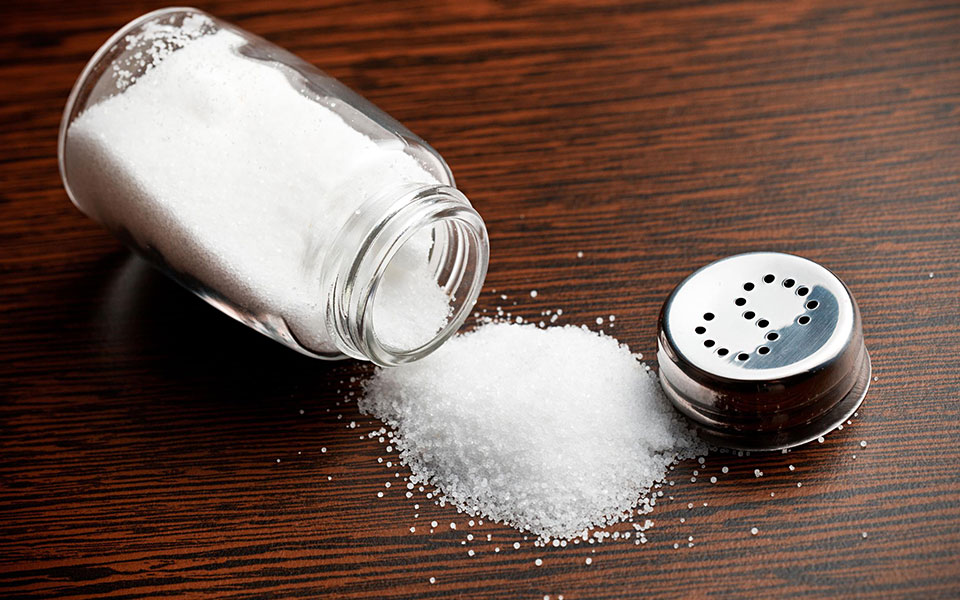Mumbai, May 17: Regulating salt consumption is key to prevent hypertension, which is associated with an increased risk of heart disease, heart attack, stroke and heart failure, say experts.
Hypertension, also known as high or raised blood pressure, is a condition in which the blood vessels have persistently raised pressure.
To lower the risk of heart disease, adults should reduce sodium intake to less than 2 grams a day, or the equivalent of about one teaspoon of table salt, according to the World Health Organization (WHO).
"Hypertension can lead to cardiovascular diseases. The rise in blood pressure caused by eating too much salt may damage the arteries leading to the heart," Vijay D'Silva, Director at the Asian Heart Institute, said in statement.
According to a recent study, published in the journal Hypertension, about half of adults living in Asia are suffering from the high blood pressure.
While lifestyle factors, including diet and stress, are behind the high hypertension rates in Asia, one common problem is high salt intake, the study showed.
Asians not only tend to have diets high in sodium, but they are genetically more sensitive to sodium, the researchers said.
"Raised blood pressure due to high salt consumption is the biggest single contributing risk factor for non-communicable diseases and damage to your kidney," explained Bhupendra Gandhi of the NGO Amar Gandhi Foundation.
Previously, it was believed that eating high amounts of fruit and vegetables might help counteract the effect of high salt on blood pressure.
However, another study led by researchers from the Imperial College London and Northwestern University, showed that people eating higher amounts of salt had higher blood pressure -- no matter how healthy a person's overall diet.
Hypertension can also affect fertility in both males and females, says Rajalaxmi Walavalkar of Cocoon Fertility.
"Anyone with hypertension is at an increased risk of infertility. A high salt diet leading to high blood pressure can result in delayed puberty and even impact reproductive health," Walavalkar noted.
Besides affecting the heart and fertility, hypertension can affect the skin too, the health experts said.
"High blood pressure can harden your arteries, which decreases the flow of blood and oxygen. An impairment of the flow of oxygen, to an organ such as your face, can cause your skin to dry and wrinkles faster which can make one look less youthful," said Amit Karkhanis - Medical Cosmetologist and founder of Dr Tvacha clinic.
Hypertension is also known to cause trouble sleeping which leads to signs of premature ageing (fine lines, uneven pigmentation and reduced elasticity).
Reducing salt consumption in everyday life, including fried foods, processed foods, can not only curb the problem of hypertension but also save multiple organs from damage and pave way for a healthy life.
Let the Truth be known. If you read VB and like VB, please be a VB Supporter and Help us deliver the Truth to one and all.
Ghaziabad (UP) (PTI): Three minor sisters died after allegedly jumping off the balcony of a ninth-floor flat in Ghaziabad early on Wednesday, police said.
Assistant Commissioner of Police (Shalimar Garden) Atul Kumar Singh said the police received information around 2.15 am about three girls jumping off the balcony of the ninth-floor apartment in a tower of Bharat City, located under the Teela Mor police station area.
On reaching the spot, the police found that the girls -- Nishika (16), Prachi (14) and Pakhi (12) -- daughters of Chetan Kumar, had fallen to the ground floor and suffered fatal injuries, the ACP said.
They were rushed by ambulance to a hospital in Loni, where doctors declared them dead on arrival, he added.
The police have initiated legal formalities and are investigating the circumstances leading to the incident, officials said.





